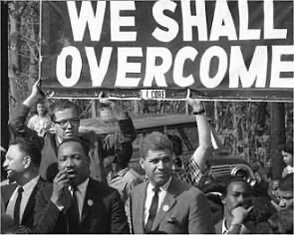Black Resistance
In 1976, in America, February was formally declared a month to celebrate the accomplishments of Black Americans. Each year, a theme is chosen by The Association for the Study of African American Life and History (ASALH). This year, the chosen theme is Black Resistance.
In explaining why it chose “Black Resistance” as the 2023 theme, ASALH writes, “as societal and political forces escalate to limit the access to and exercise of the ballot, eliminate the teaching of Black history, and work to push us back into the 1890s, we can only rely on our capacity to resist.”
Black Resistance means different things to everyone, but is generally recognized as a collective progress of black people against racial profiling, stereotyping, and segregation and in a much more positive light, it’s the work that contributes to freedom and equality for black people. Without resistance, there would be no change.
Current topics of change are the things you hear and read about in the news every single day — police reform, voting rights, equal pay. Resistance is the movement that seeks change.
America’s earliest days were corrupted ways of the past meant to segregate and dissect a whole community from society. We know this from slavery and segregation. It continues to be an ongoing issue within individuals who show unwillingness to change. By highlighting this theme, the resistance of black people is called to light this month, in particular.
With perseverance and resistance, the black community has continued to make strides in equality. With the movement, “Black Lives Matter,” the black community mostly agreed that things needed reconstructing, and in order to do so, they needed to act now. In protests and marches, change can be made, it just takes a whole society, and a cause.
Black History Month is meant to reflect on the fact that even though the war is over, civil rights still need to be fought for, and preserved. It’s a way to recognize the indescribable disrespect that the black community as a whole has faced, and recognize that the future can still benefit from actions and voices now. If we utilize our resources now, we can help to create a more secure future for all who come after us. Though we are all still learning and growing, and though it may seem futile to take a stance now, we must stop and ask ourselves, “If not now, when?”

